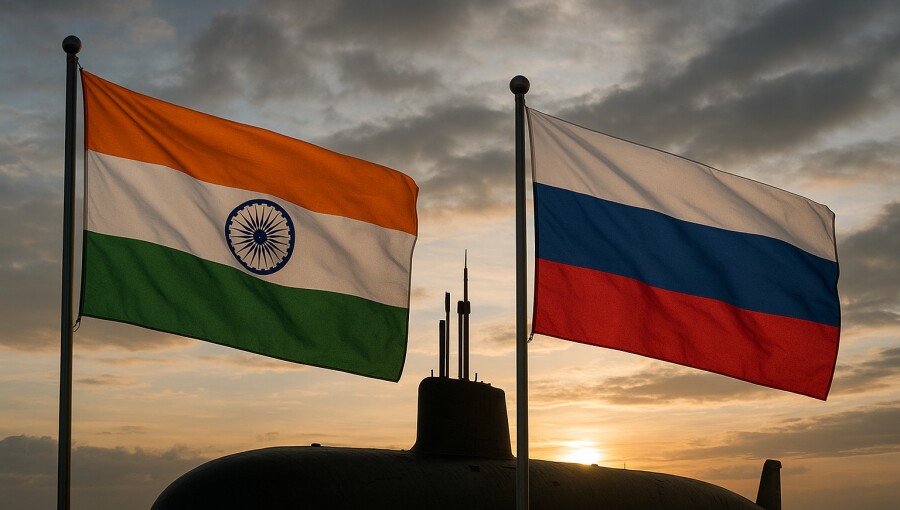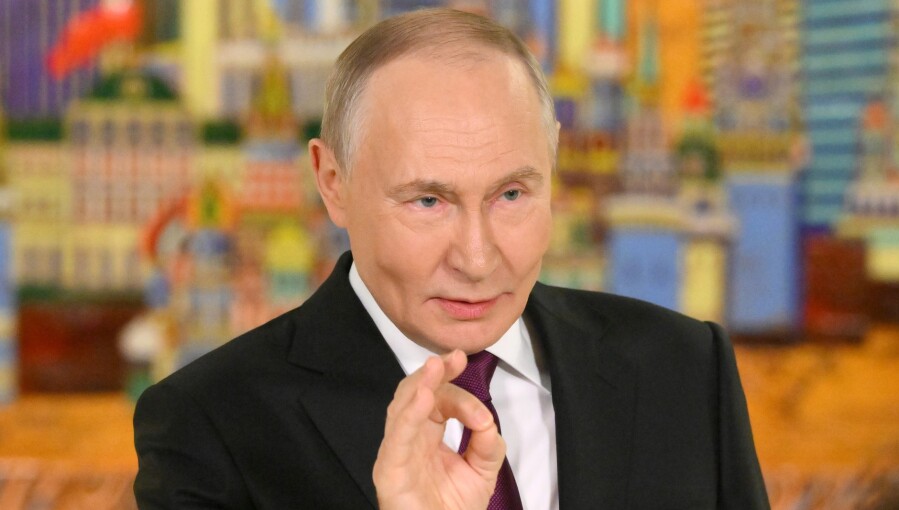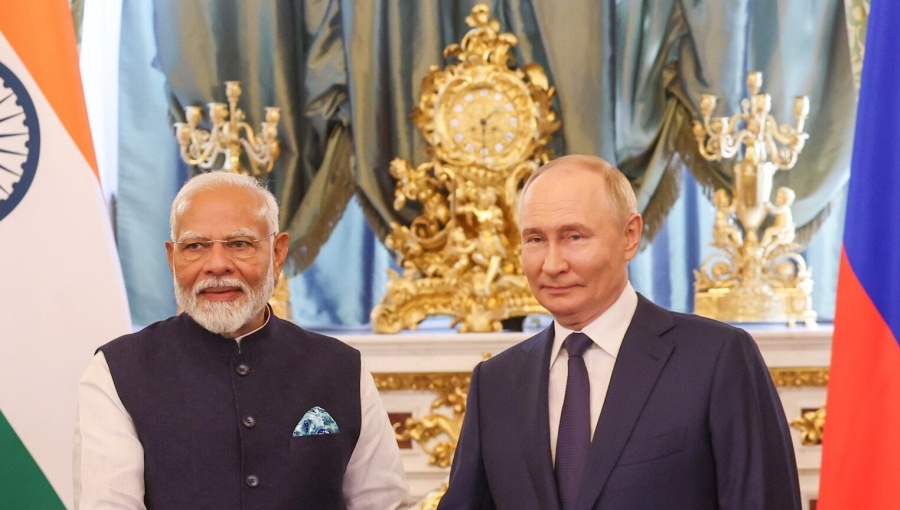Over two days last week, the United Nations, formed in 1945, with its primary motive being “to maintain international peace and security”, sadly demonstrated all of the weaknesses that have prevented it from fulfilling that core aim of its Charter over the last 80 years.
On November 18, the UN General Assembly, which represents all 193 member states of the UN, overwhelmingly passed a worthy resolution affirming “the right of the Palestinian people to self-determination”, including “the right to their independent State of Palestine.”
The resolution was introduced by Armenia, China, Egypt, Equatorial Guinea, Norway, the Russian Federation and Viet Nam, with Egypt’s contribution undertaken on behalf of the 57 member states of the Organization of Islamic Cooperation.
164 countries voted in favor of the resolution, with just 7 votes against (including the US and Israel), and nine abstentions.
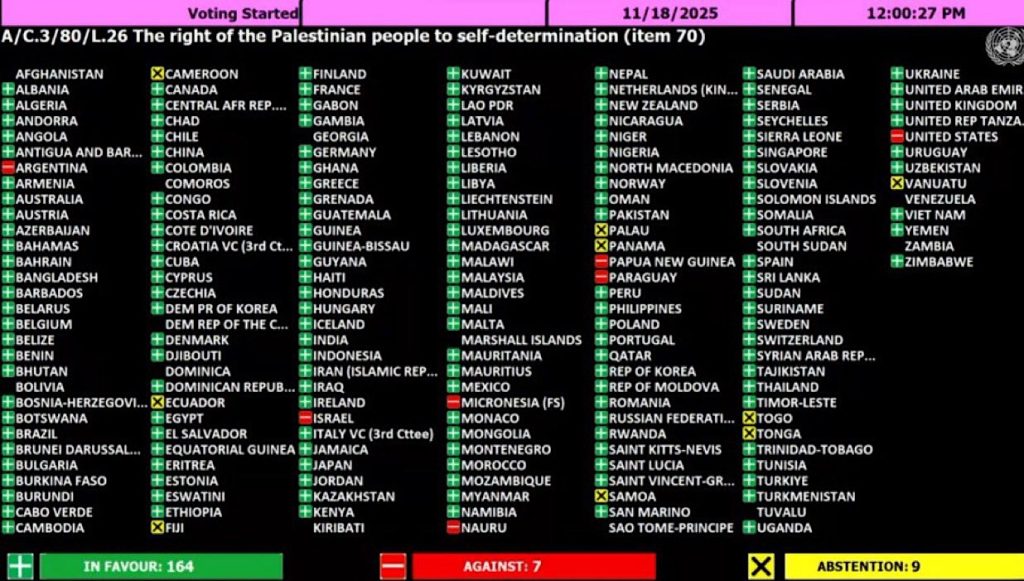
The result of the vote in UN General Assembly on November 18, 2025, affirming “the right of the Palestinian people to self-determination”, and “the right to their independent State of Palestine.”
The resolution was particularly noteworthy because it made reference to the advisory opinion issued by another of the UN’s six main bodies, the International Court of Justice, on July 19, 2024 (which I wrote about here), when, in response to a request from the UN General Assembly in 2022, to investigate the “Legal Consequences arising from the Policies and Practices of Israel in the Occupied Palestinian Territory, including East Jerusalem”, the Court found that “the State of Israel’s continued presence in the Occupied Palestinian Territory is unlawful,” and that it is “under an obligation to bring to an end its unlawful presence in the Occupied Palestinian Territory as rapidly as possible.”
The Court also pointed out that “all States are under an obligation not to recognize as legal the situation arising from the unlawful presence of the State of Israel in the Occupied Palestinian Territory and not to render aid or assistance in maintaining the situation created by the continued presence of the State of Israel in the Occupied Palestinian Territory.”
Shamefully, however, just the day before, on November 17, eleven of the countries that voted for the General Assembly resolution — the UK, France, Algeria, Denmark, Greece, Guyana, Pakistan, Sierra Leone, Slovenia, Somalia and South Korea — voted for a Security Council resolution introduced by the US which, as the international lawyer Itay Epshtain explained on X, explicitly “aims to extinguish, suspend, or condition” the right of the Palestinian people to self-determination, including the right to their independent State of Palestine.
The UN Security Council’s deeply contentious resolution
Instead of recognizing the requirement for Israel to withdraw from the Gaza Strip, the Security Council resolution, the “Comprehensive Plan to End the Gaza Conflict”, is based on the 20-point “Peace Plan” that Donald Trump bullied and cajoled the world into accepting on October 9, just two days after the second anniversary of what was, by then, Israel’s almost entirely relentless genocidal assault on Gaza’s mostly civilian population, and cemented on October 13, when he announced what he evidently called on the UN to describe as “the historic Trump Declaration for Enduring Peace and Prosperity” at Sharm El-Sheikh in Egypt, otherwise known as the “Gaza Peace Summit”, which involved world leaders flying in to fawn over him, but with no representatives of Israel or the Palestinians present at all.
We must all, I think, give Trump credit for stopping Israel’s relentless bombing of Gaza, through the ceasefire that began on October 10, coinciding with the release of the last of the remaining living Israeli hostages in exchange for nearly 2,000 Palestinian prisoners.
On every other front, however, the “peace” has been a failure. Israel has, presumably with the US’s blessing — or, at least, tolerance — broken the ceasefire on nearly 500 occasions, killing 342 civilians, and has also persistently refused to honor the requirement in the ceasefire deal to allow 600 trucks of humanitarian aid into Gaza on a daily basis. According to an article on November 20 in The New Humanitarian, “UN data puts that number at just over 100 per day. The vast majority of cargo entering is food, while essential goods like tents and medical equipment are still denied or face significant delays.”
In addition, while Israel, under the terms of the ceasefire deal, has withdrawn from the west of Gaza to the east, it still controls 58% of Gaza behind a “Yellow Line” that it has marked out with concrete markers, where many of its killings over the last seven weeks have taken place, as Palestinians have inadvertently crossed a line whose contours they were not even aware of. As The Electronic Intifada explained on November 21, in the north of Gaza the line “includes the towns of Beit Hanoun and Beit Lahiya, significant sections of the Jabaliya refugee camp, and eastern neighborhoods of Gaza City such as Shujaiya and Zeitoun.” In the south, “more than half of Khan Younis is behind the yellow line, while in Rafah, the boundary stretches across nearly the entire governorate, leaving most residents unable to return home.”
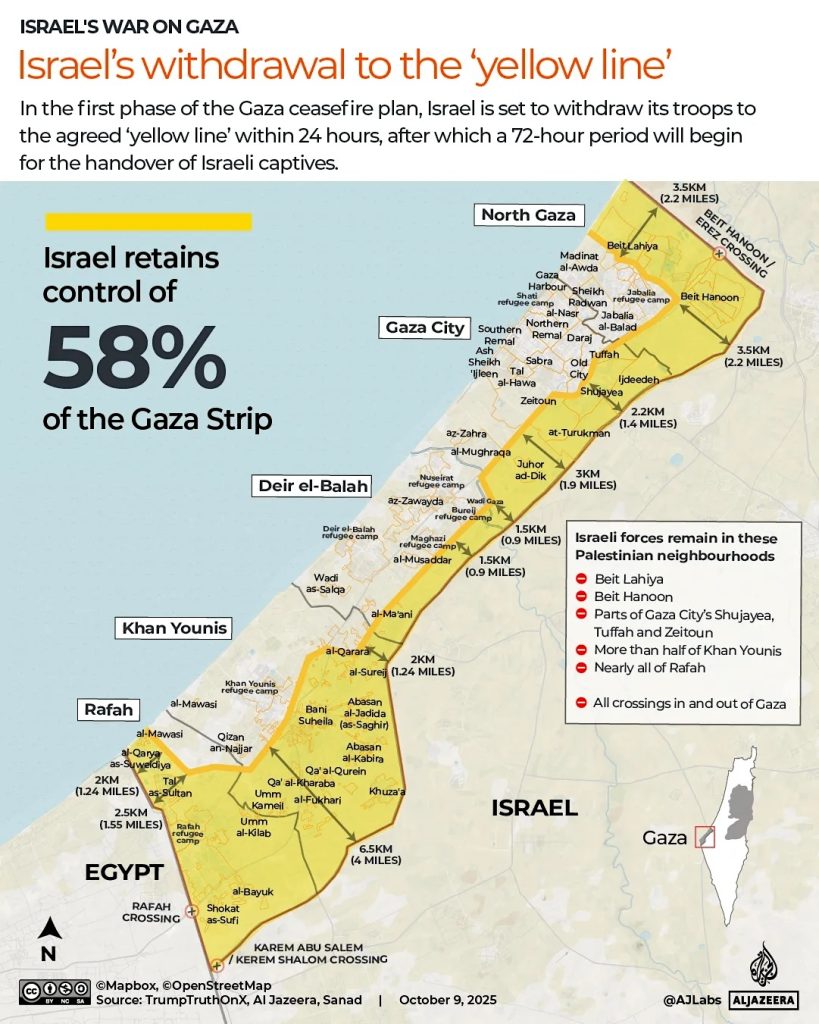
An Al Jazeera graphic showing the extent of Israel’s control of Gaza behind the “Yellow Line.”
Moreover, when it comes to Gaza’s future, the UN Security Council resolution is as sketchy as Trump’s 20-point “Peace Plan.”
All that is really clear from it is that Trump has appointed himself as a kind of unaccountable colonial emperor, the head of a “Board of Peace” that is authorized to oversee Gaza until at least December 31, 2027.
No other members of this board have been confirmed, and nothing coherent can be gleaned from Trump’s declaration on social media that it will “be chaired by me, and include the most powerful and respected Leaders throughout the World.” The only other person whose involvement seems certain is, shamefully, Tony Blair, the ex-British Prime Minister who is entirely unsuited to the role, as an unindicted war criminal directly complicit in the deaths of hundreds of thousands of Iraqis through his aggressive support for the illegal US-led invasion of Iraq in March 2003.
Trump’s “Board of Peace” will apparently be “a transitional administration with international legal personality that will set the framework, and coordinate funding, for the redevelopment of Gaza.” Its work will also, we are told, involve “the implementation of a transitional governance administration, including the supervising and supporting of a Palestinian technocratic, apolitical committee of competent Palestinians from the Strip, as championed by the Arab League, which shall be responsible for day-to-day operations of Gaza’s civil service and administration.”
Outrageously — apart from the mention of the as-yet unknown and unidentified “competent” Palestinians who will make up the “technocratic, apolitical committee” that will engage in “a transitional governance administration” — the Palestinians themselves are almost invisible in the UN resolution.
The “Comprehensive Plan” envisages that the “Board of Peace” will be in charge of Gaza “until such time as the Palestinian Authority (PA) has satisfactorily completed” what is described as a necessary program of unspecified “reform”, although it was only through pressure from Arab leaders that Palestinian self-determination and statehood were mentioned at all.
As the “Comprehensive Plan” states, “After the PA reform program is faithfully carried out and Gaza redevelopment has advanced, the conditions may finally be in place for a credible pathway to Palestinian self-determination and statehood. The United States will establish a dialogue between Israel and the Palestinians to agree on a political horizon for peaceful and prosperous coexistence.”
The “Comprehensive Plan” also envisages the establishment of “a temporary International Stabilization Force (ISF) in Gaza to deploy under unified command acceptable to the BoP, with forces contributed by participating States, in close consultation and cooperation with the Arab Republic of Egypt and the State of Israel” — the latter’s supervisory role obviously being an alarming proposal, as it is, frankly, unconscionable that the country responsible for 25 months of genocide should be involved in any way with any further military activities in Gaza.
According to the “Comprehensive Plan”, one of the main functions of the ISF is to “stabilize the security environment in Gaza by ensuring the process of demilitarizing the Gaza Strip, including the destruction and prevention of rebuilding of the military, terror, and offensive infrastructure, as well as the permanent decommissioning of weapons from non-state armed groups.”
Understandably, the requirement for those involved in the ISF to engage in actively disarming Hamas means that none of the countries floated as participants — including Egypt, Indonesia, and Azerbaijan — has actually agreed to become involved, while Türkiye’s involvement has been ruled out by Israel. Saudi Arabia, the UAE and the Arab league have also made it clear that “they would not send any troops on a mission to disarm the Palestinians.”
As King Abdullah of Jordan told the BBC on October 27, “What is the mandate of security forces inside of Gaza? We hope that it is peacekeeping, because if it’s peace enforcing, nobody will want to touch that. Peacekeeping is that you’re sitting there supporting the local police force, the Palestinians, which Jordan and Egypt are willing to train in large numbers, but that takes time. If we’re running around Gaza on patrol with weapons, that’s not a situation that any country would like to get involved in.”
As for Israel’s continued presence in Gaza, the “Comprehensive Plan” offers no timescale for Israeli withdrawal, stating only that, “As the ISF establishes control and stability, the Israel Defense Forces (IDF) will withdraw from the Gaza Strip based on standards, milestones, and timeframes linked to demilitarization that will be agreed between the IDF, ISF, the guarantors, and the United States, save for a security perimeter presence that will remain until Gaza is properly secure from any resurgent terror threat.” Those “standards, milestones, and timeframes” are so vague, with so many parties involved, that it is all too easy to imagine Israel’s continued presence in Gaza rolling on indefinitely.
The “Comprehensive Plan” also “underscores the importance of the full resumption of humanitarian aid in a manner consistent with relevant international legal principles and through cooperating organizations, including the United Nations, the International Committee of the Red Cross, and the Red Crescent”, while “ensuring such aid is used solely for peaceful uses and not diverted by armed groups.”
It also “calls upon the World Bank and other financial institutions to facilitate and provide financial resources to support the reconstruction and development of Gaza , including through the establishment of a dedicated trust fund for this purpose and governed by donors” — a hope that might surprise many observers who would have thought that, to put it mildly, Israel ought to be required to contribute to the $70 billion that the UN, on October 14, estimated is required to rebuild Gaza and make it safe after two years of genocide.
The UN’s persistent problems with Israel
The discrepancy between the General Assembly and Security Council resolutions discussed above arose essentially because, although the UN General Assembly functions as an egalitarian representation of the UN’s member states, the UN Security Council is another beast entirely. Consisting of five permanent member states — the so-called victors of the Second World War, the US, the UK, France, Russia and China, who each wield an unaccountable and much-criticized veto power — its other ten members are non-permanent, and are elected for two-year terms.
The veto power of the five permanent member states not only protects them from being held accountable for any of their own crimes (of which, of course, there have been many over the last 80 years); it also unjustly enables any of them to override the majority opinions of the General Assembly and/or of the Security Council if they are biased in favor of any other member state.
For almost its entire history, the UN has been dogged by the actions of one member state in particular; Israel, whose violent and self-righteous sense of impunity has mockingly held up a dark mirror to the UN’s aspirations for 77 years, since the blood-soaked founding of the State of Israel in 1948, when 15,000 Palestinians were murdered, 750,000 exiled from their land, and over 500 towns and villages destroyed.
The nascent UN had adopted a contentious partition plan for Palestine in November 1947, which had been rejected by the Palestinians, but although there was significant opposition to the subsequent and grotesquely violent establishment of the State of Israel, Israel was accepted as a member state in May 1949.
Even before Israel joined, however, in December 1948, the UN General Assembly passed Resolution 194, which endorsed the Palestinians’ right of return to the land from which they had been exiled, via an article in the resolution stating that “refugees wishing to return to their homes and live at peace with their neighbours should be permitted to do so at the earliest practicable date”, and that “compensation should be paid for the property of those choosing not to return and for loss of or damage to property which, under principles of international law or equity, should be made good by the Governments or authorities responsible.”
Israel, however, has persistently refused to accept the resolution, and the UN General Assembly capitulated to its intransigence in December 1949, passing Resolution 302(IV), which authorized the creation of UNRWA (the United Nations Relief and Works Agency for Palestine Refugees in the Near East) to support Palestinian refugees — and their right to return. Over the long decades of Israel’s increasingly hysterical opposition to Palestinian rights, UNRWA’s very existence has enraged it to such an extent that, since the genocide began, the State of Israel has repeatedly targeted UNWRA and its employees, and, after the International Court of Justice issued provisional measures in January 2024 aimed at preventing a “plausible genocide” in Gaza, falsely accused it of harboring Hamas members involved in the October 7 attacks.
After the Six-Day War, in June 1967, when Israel seized the Gaza Strip from Egypt, the West Bank and East Jerusalem from Jordan and the Golan Heights from Syria, the last major UN resolution regarding Israel and its lawless territorial expansion was passed by the UN Security Council in December 1967 — Resolution 242, which called for the withdrawal of Israeli armed forces from all of the territories occupied in the conflict.
Israel, of course, refused to honor the resolution, leading eventually, to the momentous ICJ opinion last July, although it was at least the basis for numerous high-level, but flawed international efforts to secure peace between Israel and the Palestinians over the decades that followed.
Since October 7, 2023, however, the US has resolutely defended Israel from any efforts to hold it accountable for its actions, using its veto in the Security Council on six occasions to thwart calls for a ceasefire — under President Biden on October 18, 2023, December 8, 2023, February 20, 2024 and November 20, 2024, and under Donald Trump on June 4 and September 18 this year.
This, then, is the context for Trump’s “victory” at the UN Security Council last week — the only resolution regarding Gaza that can pass is one proposed by the US, because it will quash any other resolution using its veto.
Obviously, Russia and/or China could have used their veto, but I suspect that neither wanted to enrage Trump over a resolution that they have every reason to believe will fail.
Apart from all the astonishing vagueness in the UN resolution, the main reasons for believing that it will fail, as I see it, involve its wilful refusal to acknowledge the right of Hamas and other Palestinian factions to exist and to resist occupation, and its underestimation of the extent to which Israel will accept being sidelined from its obsession with controlling Gaza on its own terms.
The response of Hamas and other Palestinian factions
Hamas and the other Palestinian factions understandably rejected the resolution, issuing a rare statement in English, posted on X by Drop Site News, which insisted on the Palestinians’ right to self-determination, and opposed all efforts to force them to disarm.
As the groups stated, “The resolution imposes an international guardianship mechanism on the Gaza Strip, which our people and their factions reject”, and also “detaches the Gaza Strip from the rest of the Palestinian geography and attempts to impose new realities away from our people’s principles and legitimate national rights, thereby depriving our people of their right to self-determination and the establishment of their Palestinian state with Jerusalem as its capital.”
Noting that “resisting the occupation by all means is a legitimate right guaranteed by international laws and conventions”, the groups added that “the weapons of the resistance are linked to the existence of the occupation, and any discussion of the weapons file must remain an internal national matter connected to a political path that ensures the end of the occupation, the establishment of the state [of Palestine], and self-determination.”
They also added that “assigning the international force with tasks and roles inside the Gaza Strip, including disarming the resistance, strips it of its neutrality, and turns it into a party to the conflict in favor of the occupation. Any international force, if established, must be deployed only at the borders to separate forces, monitor the ceasefire, and must be fully under UN supervision. It must operate exclusively in coordination with official Palestinian institutions, without the occupation having any role in it, and work to ensure the flow of aid, without being turned into a security authority that pursues our people and their resistance.”
They also stated, “Humanitarian aid, relief for the affected, and the opening of crossings are fundamental rights for our people in the Gaza Strip. Aid and relief operations cannot remain subject to politicization, blackmail, and subjugation to complex mechanisms amid the unprecedented humanitarian catastrophe created by the occupation, which requires expediting the opening of crossings and mobilizing all resources to address it through the UN and its agencies, foremost among them UNRWA.”
Francesca Albanese condemns the resolution
Legal experts also condemned the resolution, with Francesca Albanese, the Special Rapporteur on the situation of human rights in the Palestinian territories occupied since 1967, providing a vivid reminder of why the UN’s Special Mandates holders represent the very best of the UN’s mechanisms for seeking justice.
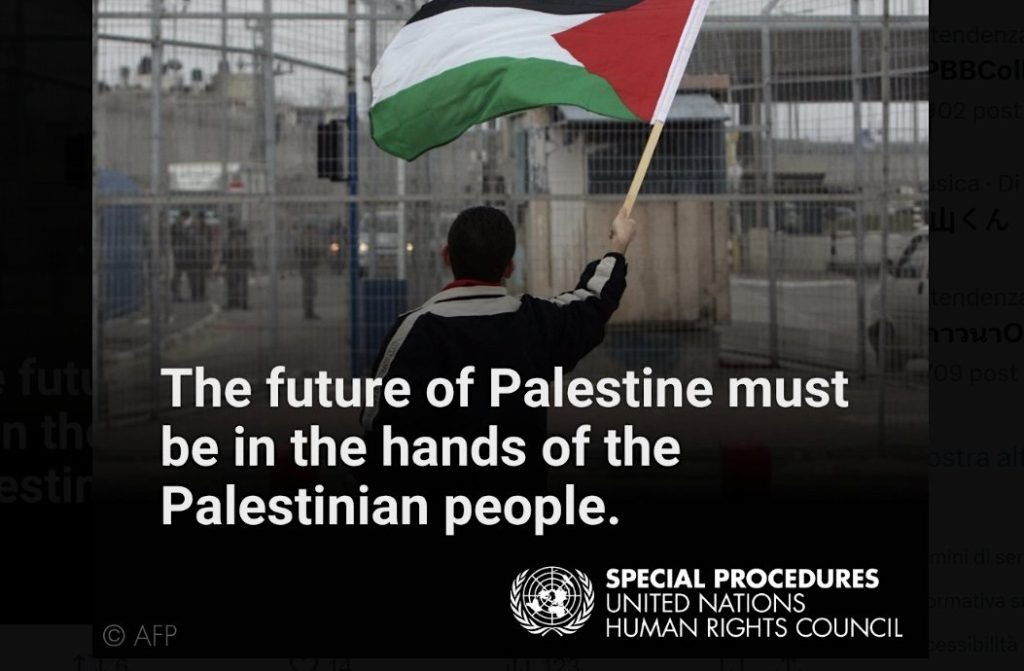
An image from a post on X by Francesca Albanese on November 10.
In a press release on November 19, Albanese stated that, “Despite the horrors of the last two years and the ICJ’s clear jurisprudence, the [Security] Council has chosen not to ground its response in the very body of law it is obliged to uphold: international human rights law, including the right of self-determination, the law governing the use of force, international humanitarian law, and the UN Charter.”
She added that, “Rather than charting a pathway toward ending the occupation and ensuring Palestinian protection, the resolution risks entrenching external control over Gaza’s governance, borders, security, and reconstruction. The resolution betrays the people it claims to protect.”
She also stressed that the resolution “replaces clear legal obligations towards Palestinians with a ‘security-first, capital-driven model of foreign control’ that entrenches existing power asymmetries”, adding, “The mandate to ‘secure borders,’ ‘protect civilians,’ and ‘decommission weapons,’ focuses almost exclusively on disarming Palestinian armed groups while doing nothing to end the root cause of the violence: Israel’s ongoing unlawful siege, occupation, racial segregation and apartheid, and ethnic cleansing.”
Furthermore, as she stated, “A military force answering to a so-called ‘Board of Peace’ chaired by the President of the United States, an active party to this conflict that has continually provided military, economic and diplomatic support to the illegal occupying Power, is not legal. It is a brazen attempt to impose, by threat of continued force against a virtually defenceless population, US and Israeli interests, plain and simple. Essentially, it will leave Palestine in the hands of a puppet administration, assigning the United States, which shares complicity in the genocide, as the new manager of the open-air prison that Israel has already established.”
She added, “If the OPT, including Gaza, requires an international presence, it should be mandated to supervise Israel’s immediate and unconditional withdrawal from the occupied Palestinian territories, in line with the ICJ’s 2024 advisory opinion and General Assembly resolution,” the Special Rapporteur said. “Such a presence should protect civilians, guarantee the cessation of hostilities, prevent further displacement, ensure accountability for grave breaches, and support the Palestinian people in exercising their right to freely determine their political future.”
Albanese also warned that, “as long as Israel remains physically present in any portion of the OPT, including the Gaza Strip, it is an internationally wrongful act that all States, including the United States, are bound not to recognise, aid or assist.”
She added, “The ICJ was clear: self-determination is an inalienable right of the Palestinian people and the UN and all States have an obligation to assist in its realisation. This can only begin with the immediate and unconditional withdrawal of Israel’s unlawful presence in the occupied Palestinian territory. Replacing an abusive trustee with another is not self-determination, it is unlawful”.
She also stated that the Palestinians “do not need a surveillance force over the ruins of their destroyed homeland”, adding, “They need a protective international presence that ends Israel’s unlawful occupation, stops the genocide and restores their capacity for self-governance. Protection means lifting the blockade, ensuring unhindered humanitarian access, supporting Palestinian-led governance, guaranteeing the right of return and enforcing international law in full.”
Warning that the plan “has already been used by some States as a ‘political pressure valve’ to suspend discussions on sanctions and other concrete measures necessary to halt serious violations”, she stated, “States cannot ignore serious breaches of peremptory norms because a political plan offers temporary diplomatic convenience”, and added, “I therefore urge all states, especially those that voted in favor of the resolution, to interpret and implement it in a manner consistent with binding international law. To sideline international law renders the UN complicit, undermines the UN Charter and can only lead to ‘intensifying human carnage.’”
In conclusion, she stated, “This is an existential moment. The international community must not allow Gaza’s future — or the future of the Palestinian people — to be decided without their agency and consent. Only an approach rooted in justice, legality, and self-determination can lead to genuine peace.”
Israel’s frustrations
Israel, meanwhile, spent the evening before the resolution insisting, as Benjamin Netanyahu said at a cabinet meeting, “Our opposition to a Palestinian state on any territory has not changed”, with defense minister Israel Katz echoing his words, writing on X, “Israel’s policy is clear: no Palestinian state will be established,” and foreign minister Gideon Saar also writing on X that the country would “not agree to the establishment of a Palestinian terror state in the heart of the Land of Israel.”
Far-right minister Bezalel Smotrich, meanwhile, told Netanyahu on X, “Formulate immediately an appropriate and decisive response that will make it clear to the entire world — no Palestinian state will ever arise on the lands of our homeland,” prompting a rebuke from Netanyahu, who stated that he did “not need affirmations, tweets or lectures from anyone”, while his other far-right minister, Itamar Ben-Gvir, called the Palestinian identity an “invention.”
Publicly, Netanyahu supported the resolution, but it may have been in response to frustration within Israel that strikes were launched in Gaza on Saturday, November 22, in which at least 33 people were killed and many more wounded, mostly women and children. Israel alleged that the strikes were launched after “an ‘armed terrorist’ crossed into an Israeli-held area and shot at troops in southern Gaza”, even though “no soldiers were hurt.” Israel also claimed that their strikes “were targeting two Hamas figures”, but it has lied so relentlessly about alleged targets for the last two years that it is difficult to regard is claims as credible. Instead, it seemed to be just another example of the unrelenting contempt that Israel has for Palestinian civilians’ lives.
The current chaos of the US-led plans
Meanwhile, the US-led plans for Gaza seem to be nothing short of chaotic. On November 14, before the UN resolution was passed, the Guardian ran an article in which a US official described how the US was currently “planning for the long-term division of Gaza into a ‘green zone’ under Israeli and international military control, where reconstruction would start, and a ‘red zone’ [the area under Hamas control] to be left in ruins.”
This corresponds with a proposal, mentioned by The Electronic Intifada on October 21, via a report in The Times of Israel, that Donald Trump’s son-in-law Jared Kushner and US vice president JD Vance have suggested that “the area under Israeli military control would become a secured and rebuilt zone, concentrating reconstruction, international investment, infrastructure and jobs there”, while “the remainder, under Hamas control, would stay isolated and be denied reconstruction until Hamas is disarmed.”
This might also explain why, as the BBC reported on November 12, its analysis of satellite imagery showed that entire neighbourhoods controlled by the IDF — over 1,500 buildings in total — had been “levelled in less than a month, apparently through demolitions”, perhaps to clear the way for the mirage of foreign investment-led reconstruction.
According to the Guardian’s Emma Graham-Harrison, however, “Plans for Gaza’s future have been shifting at a dizzying rate, reflecting a chaotic, improvised approach to resolving one of the world’s most complex and intractable conflicts.” She added that, “After weeks in which the US promoted reconstruction in the form of fenced-in camps for small groups of Palestinians, referred to as ‘alternative safe communities’ (ASC)”, those plans had been dropped, which was probably for the best, as they sounded like micro-concentration camps.
Graham-Harrison also reported additional problems, noting that plans put forward by Centcom (US Central Command) for European forces to be involved — after the use of any US soldiers was ruled out by Trump — were described by a source as “delusional.”
They apparently involved “plans to put European forces — including hundreds of British, French and German soldiers — at the core of the ISF”, including “up to 1,500 infantry soldiers from the UK, with expertise including bomb disposal and military medics, and up to 1,000 French troops to cover road clearance and security.” The US also, apparently, “wanted troops from Germany, the Netherlands and Nordic countries to handle field hospitals, logistics and intelligence”, even though all of its plans ignored that fact that, as Graham-Harrison explained, “After long missions in Iraq and Afghanistan, very few European leaders would be willing to risk their soldiers’ lives in Gaza.”
Following up on fears of Gaza being permanently divided into a green zone and red zone, the analyst and author Khaled Elgindy spoke to The New Arab, describing Gaza as “split between an indefinitely Israeli-ruled sector and a massive concentration camp.” Condemning the UN resolution, he said, “This is the reality that the Security Council has normalized.”
US-Palestinian journalist and writer Ramzy Baroud, meanwhile, told The New Arab that “Israel’s new tactic is to divide Gaza and let those Palestinians who are not linked to the resistance trickle into the rebuilt zone,” by which, as TNA described it, they were “hoping to set up an alternative governing structure.” However, he added that he believed that Israel’s attempt to form “two Gazas” was “unlikely to gain enough traction among people, affirming that their strong sense of unity has long made it almost impossible to manufacture divisions within Gaza’s society.” As he described it, “I don’t think Israel can do this kind of social engineering in Gaza, no matter how desperate the situation.”
The power of the Palestinians’ unassailable demand for self-determination
Those of us who care about the Palestinians’ right to self-determination must certainly hope that Ramzy Baroud is right. He is certainly not alone. In a hugely revealing — and deeply humanizing — article by Drop Site News on November 23, Jeremy Scahill and Jawa Ahmad spoke to Palestinian resistance leaders, who explained in detail every step of the negotiations towards a ceasefire, and their hopes for the future, beginning with Israel’s brazen and unconscionable attack on negotiators in Doha, Qatar, on October 9.
Central to this is the continuation of the Palestinian resistance to what Drop Site News accurately described, following the passage of the UN Security Council resolution, as “a battle for survival and liberation against a US-Israeli axis that has been formally endorsed by many Arab nations and rubber-stamped by the Palestinian Authority, which operates without a popular mandate”, and which “amounts to an effort to disarm the entire cause of Palestinian liberation and outsource its future to a nebulous foreign committee chaired by Trump.”
As Mohammed Al-Hindi, the chief negotiator for Palestinian Islamic Jihad, explained, “No one — especially the Americans, and the Europeans as well, and unfortunately some Arabs — no one wants there to be resistance to Israel in the region. The resistance embarrasses them. So the ultimate goal is for the Palestinian people to lose its resistance. If we lose the resistance and the ability to resist, the Palestinian cause is finished. What protects the Palestinian people is its resistance. The issue is not about the names Hamas or Islamic Jihad — the Palestinian people resist because the enemy, Israel, continuously attacks.”
Al-Hindi also explained how the proposed “disarmament” of the resistance was an unattainable goal. He asserted that there was “no heavy weaponry” in Gaza, and that all that exists is the capacity to manufacture rocket-propelled grenades, mortars and IEDs. As he stated, “The weapons present in Gaza are primarily weapons of willpower. Whenever there is a need for weapons, the young people will immediately manufacture them, and their determination is strong. Therefore, talk about handing over weapons is impractical, unrealistic, and meaningless, because at any time, if there is will and if there is aggression — and the Palestinian people want to defend themselves — weapons can easily be manufactured inside Gaza.”
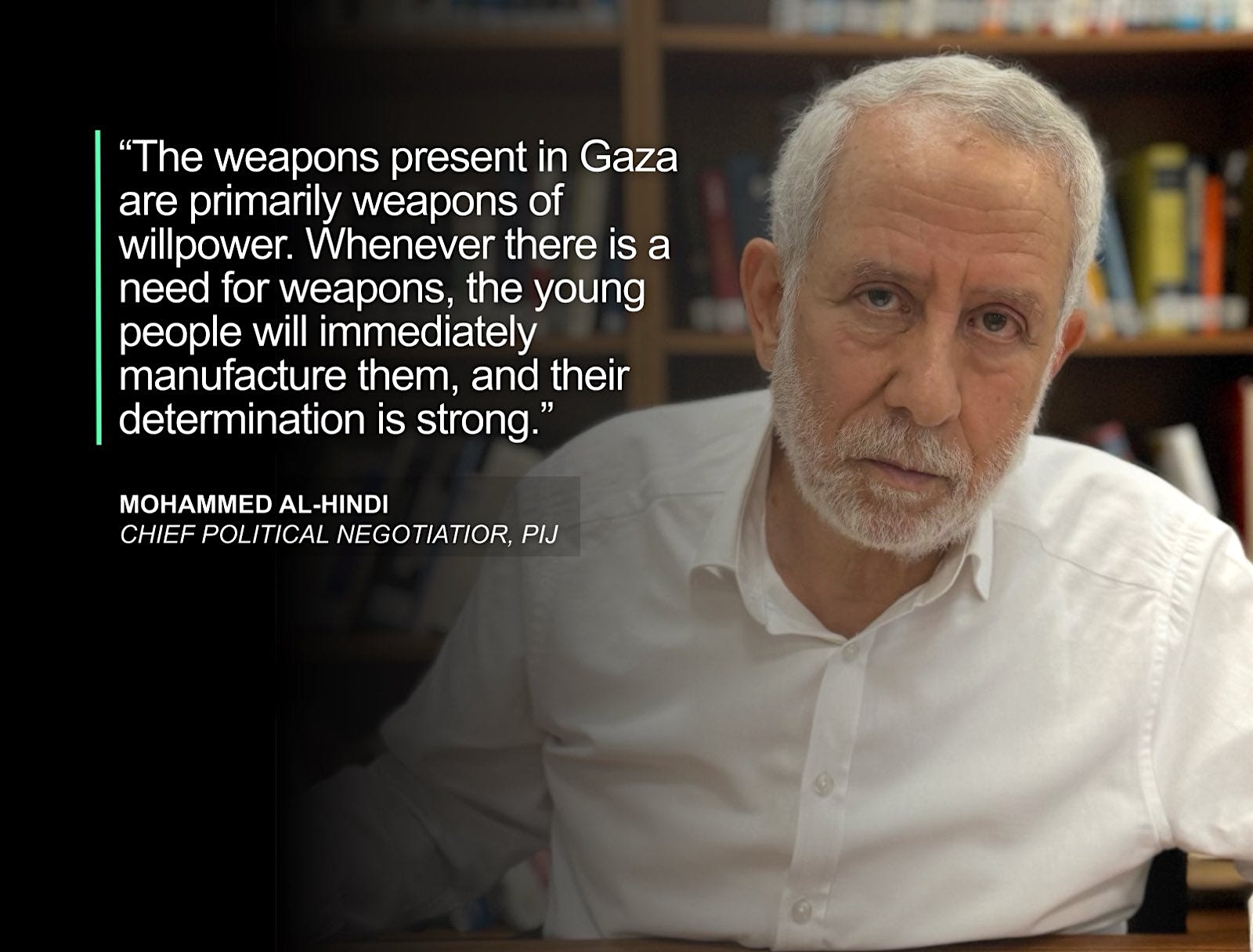
Mohammed Al-Hindi, from Drop Site News‘ article on November 23.
That said, the Palestinian resistance factions are open to negotiations that move beyond Israel’s demand for the “total disarmament and the dismantling of Hamas”, because that is “a red line and would amount to a surrender of the cause of liberation and self-determination.” However, “they have told mediators — as well as US officials in direct talks — that they are open to internationally-certified, monitored agreements that would involve weapons held by the resistance being effectively decommissioned, though not surrendered”, but only “in the context of a long-term truce with Israel and a total cessation of military attacks against Palestinians.”
In contrast to the Palestinian negotiators’ resolute defence of continued resistance, the current reality maintained by Israel looks untenable, while the visions of Trump and his allies look like nothing less than an unattainable mirage.
The “Riviera” mirage fades from view
No one involved with the story of Gaza since Trump returned to power in January can forget that, when he invited Netanyahu to the White House in February, he surprised everyone — including, it seems, Netanyahu himself — by fantasizing about the US taking over Gaza and turning it into “the Riviera of the Middle East.” This flight of fancy also involved “relocating” Gaza’s two million Palestinians, allegedly for humanitarian reasons, even though that was both a grotesquely illegal proposal for forced displacement or ethnic cleansing on an unprecedented scale, and completely impractical in reality, as no country has shown any willingness to take in more than a handful of Gaza’s civilian population since May 2024, when Israel closed the Rafah Crossing with Egypt, through which, until that point, around 100,000 Palestinians had left Gaza via expensive Egyptian people-smugglers.
Nevertheless, as recently as the start of September, a “Gaza Riviera” plan, envisaging $100 billion of funding for “a bustling port city bisected by a watercourse and bordered by up to eight leafy AI-powered high-tech megacities, apparently modelled after Saudi Arabia’s troubled Neom project”, was circulating in the White House, apparently developed by Israeli businesspeople, using financial models developed by the US consulting firm Boston Consulting Group (BCG) — the same people responsible for the murderous Gaza Humanitarian Foundation aid scheme, which began in May. The plan also fantasized about the “temporary relocation” of Gaza’s entire population — either “to another country or into restricted, secure zones during reconstruction.”
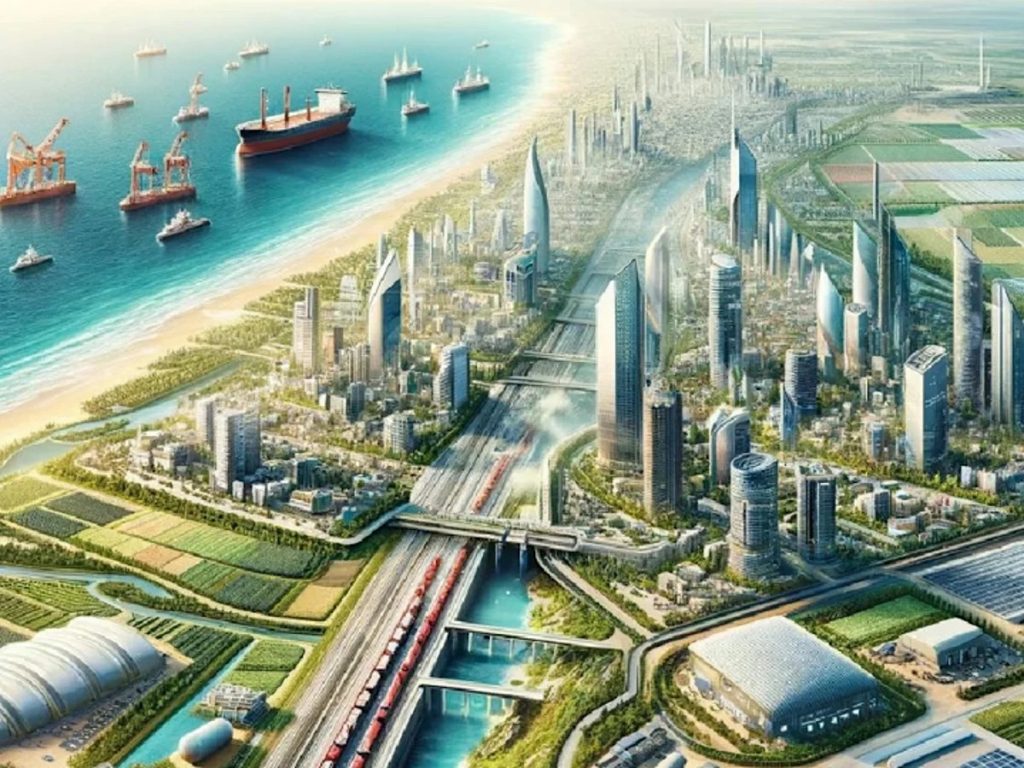
A fanciful image from the “Gaza Riviera” plan that was circulating in September this year, in which genocide was, ghoulishly, seen as an excellent “regeneration” opportunity.
With dreams about the forced displacement of the entire population now, apparently, consigned to the realms of failed fantasies, as the entire surviving Palestinian population is squeezed into the 42% of the Strip that is not still occupied by Israel, thwarting any malignant hopes of deliriously luxurious beachfront development, the reality on the ground right now, however, still suits Israel more than anyone else.
While real estate developers in the US and elsewhere in the west — and, also, presumably in the Gulf — were salivating about the prospects for a “techno-Riviera”, Israel continued doing what it has, essentially, been doing since October 2023 — taking over and destroying as much of Gaza as possible, while killing as many Palestinians as possible, and squeezing those who survived into ever-smaller areas of land in which, if they survived, they could be held in what amounted to concentration camps.
These aims were made explicit in May, when Israel launched “Operation Gideon’s Chariots”, involving as much extermination as possible and a desire to conquer 75% of Gaza, as I reported in articles at the time, including Israel Wants to Kill Everyone in Gaza and Unparalleled Depravity as Israel Implements Its “Final Solution” for Gaza, and yet what it is doing now is not too far removed from those plans.
As noted above, Israel currently occupies and controls 58% of Gaza, including all of its agricultural land, while the remaining Palestinians are squeezed into the remaining 42%, effectively a hideously overcrowded and heavily polluted and unsanitary shanty town of tents beside the sea, with humanitarian aid still strangled, hospitals struggling, and licence given for Israel to undertake bombing raids whenever the thwarted urge to kill becomes too much for their blackened hearts to bear.
It’s not easy to see a way out of this, but as Trump’s dreams of ruling Gaza at the head of a spectral “Board of Peace” diminish, and the International Stabilization Force presumably continues not to materialize, it will soon become evident that the current status quo is no kind of victory at all.
The largely hidden dissent in the UN Society Council, pointing a way forward
I began this lengthy review of the current situation in Gaza with reference to the two mutually exclusive resolutions passed by the General Assembly and the Security Council last week, but while it is clear that Trump used the US’s unacceptable power in the Security Council to ram through his “Comprehensive Plan”, the dissenting voices of the countries who supported the resolution may indicate the best way forward.
As the UN reported, at least nine countries explicitly highlighted the need for Palestinian self-determination, at odds with the reality of what they had just endorsed, which was to make Donald Trump Gaza’s unaccountable emperor for at least two years.
Algeria’s representative “expressed support for its core objectives of maintaining the ceasefire and creating conditions for Palestinians to exercise their inalienable right to self-determination and Statehood”, Somalia’s representative expressed concern over the “absence of explicit reference to the two-State solution”, underscoring that a “just and lasting peace can only be achieved by recognizing and upholding” that arrangement, while Guyana’s representative stated, “The continuing occupation of the Palestinian territory is a violation of international law,” underscoring that the two-State solution must “remain the centrepiece of all peace efforts in Palestine.”
France’s representative “stressed that implementation of the text should be framed in a ‘clear political and legal context’ that includes the implementation of the two-State solution”, while Pakistan’s representative underscored that “the right to self-determination is ‘inherent and unconditional’ and that ‘peace cannot be achieved in bypassing the Palestinians’”, also noting that “several important suggestions made by his and other delegations did not appear in the text”, including “a clear political path to Palestinian statehood.”
The representative of Sierra Leone, Council President for November, stressed that the Security Council cannot “extinguish, suspend or condition” the Palestinian right to statehood, which, he pointed out, exists “independently of any peace plan, governance arrangement or reform programme.”
Greece’s representative said that the resolution “opens the path to the “realization” of the two-State solution and Palestinian self-determination”, while Denmark’s representative said that it “represents ‘our best opportunity to bring about lasting peace’ in which Palestinians can shape their own future”, and “Gaza is reunited with the West Bank under a reformed Palestinian Authority as part of a two-State solution”, while the UK, emphasizing the need for increased humanitarian aid, also said that “Palestine must be run by Palestinians”, and that the UK would “continue to work with all partners to implement Resolution 2803 and to forge a just and lasting peace for Israelis and Palestinians, anchored in a two-state solution.”
In addition, explaining their abstentions, China’s representative said that “the text was ‘vague and unclear’ on critical elements, such as the structure, composition and terms of reference for both the Board and the Force”, noting that “Palestine is barely visible in the draft,” and adding that the resolution “offers ‘no effective participation’ for the United Nations despite the Organization’s ‘ample experience’ in post-conflict recovery”, while Russia’s representative explained that the resolution was “something we just couldn’t support”, because it “does not reflect the cornerstone formula of the two-State solution and endows the Force with peace-enforcement tasks”, which “could actually transform it into a party to the conflict”, even though “not a single one of the potential troop-contributing countries agreed to this.”
The message here is clear: Palestinian self-determination is the only way out of what is otherwise a messy impasse with no clear exit route. As Mohammed Al-Hindi told Drop Site News, “According to our history, there were moments where everyone thought that the Palestinians were defeated and they rose up again. If anyone believes that he can force the Palestinian people to give up their rights, he is thinking wrong. We are not defeated. And we are not very far from seeing a Palestinian independent sovereign state, inshallah.”
Andy Worthington is a freelance investigative journalist, activist, author, photographer (of a photo-journalism project, ‘The State of London’, which ran from 2012 to 2023), film-maker and singer-songwriter (the lead singer and main songwriter for the London-based band The Four Fathers, whose music is available via Bandcamp). He is the co-founder of the Close Guantánamo campaign (see the ongoing photo campaign here) and the successful We Stand With Shaker campaign of 2014-15, and the author of The Guantánamo Files: The Stories of the 774 Detainees in America’s Illegal Prison and of two other books: Stonehenge: Celebration and Subversion and The Battle of the Beanfield. He is also the co-director (with Polly Nash) of the documentary film, “Outside the Law: Stories from Guantánamo”, which you can watch on YouTube here.
To receive new articles in your inbox, please subscribe to Andy’s new Substack account, set up in November 2024, where he’ll be sending out a weekly newsletter, or his RSS feed — and he can also be found on Facebook (and here), Twitter and YouTube. Also see the six-part definitive Guantánamo prisoner list, The Complete Guantánamo Files, the definitive Guantánamo habeas list, and the full military commissions list. Please also consider joining the Close Guantánamo campaign, and, if you appreciate Andy’s work, feel free to make a donation via PayPal or via Stripe.
